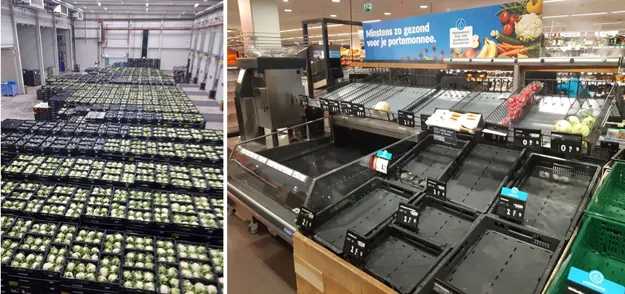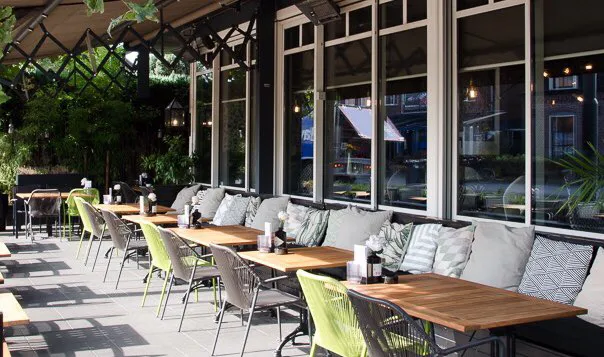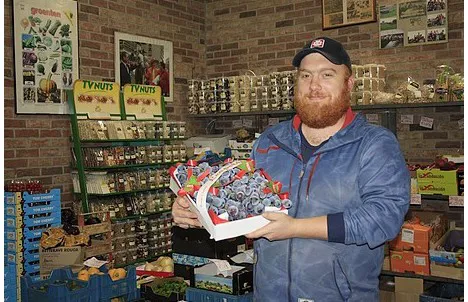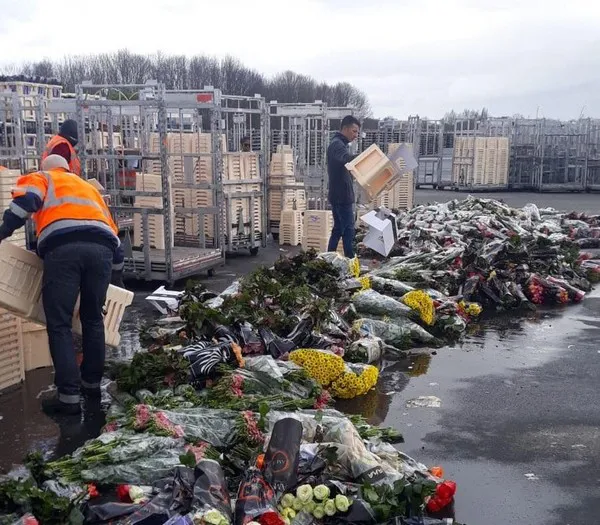There were bizarre scenes in Dutch supermarkets over the weekend. Not only was toilet paper, hand soap, and pasta being sold out. It seems, despite being told to take care, people were also hoarding fruit and vegetables. The Dutch Food Trade Central Bureau (CBL) says some consumers are buying more than their usual amount of daily or even weekly groceries.
This has had highly diverse effects on the fruit and vegetable trading sector. Supermarket suppliers have seen their sales increases tremendously. In contrast, the revenue of companies supplying the hospitality industry has all but evaporated.
Volumes surpass those of Christmas and Easter
The Greenery's CEO Steven Martina has expressed his deep respect for all of the Greenery's growers and employees. He did so via social media. "These people are giving their all during this current uncertain coronavirus time. They are fully committed to getting fresh fruit and vegetables into supermarkets. They are doing so, along with our retail partners' workers."
"The volumes are surpassing those of Christmas and Easter. We are, however, used to responding quickly and have sufficient capacity in our distribution centers (DCs). It is, therefore, not necessary to hoard food. It is even unwelcome. We will keep the chain going with respect for all our employees' health," he says.

On the left: The Greenery is ensuring that their DCs' supermarket stocks are replenished. They do so via their Tolpoort location and their growers in North Holland. Shoppers will once again have access to ample fresh fruit and vegetables in Dutch supermarkets. Source: Joost Rouwhorst.
On the right: Empty fruit and vegetable shelves at Albert Heijn. Photo: Robert van den Berg.
"Our growers and staff are also worried, just like everyone. They are concerned about their own health as well as that of their parents and children. Nevertheless, they are willing to take responsibility and ensure the continuity of food provision in the Netherlands and beyond. They do this, so people who are on the front line have continued access to immune-boosting fresh fruit and vegetables," says Steven.
"These are people like doctors, hospital staff, caregivers, teachers, those in the public transport sector, and the police. These people need these foods to keep fighting. I hope we will continue to find this strength in each other. And I hope we keep complying with the far-reaching but necessary measures. After all, failure is not an option."
CBL: Consider one another
Supermarkets are urging consumers to stick to their normal shopping routine. That means: buy the amount you usually do. Every person in the Netherlands has enough food and hygiene products. Consider one another, remain civil, and ensure that others can keep doing their regular shopping too.
"Continue to follow your normal shopping routine. That ensures there is enough time for drivers to resupply supermarkets in time. Shelf packers also need enough time to restock shelves. There is enough for everyone. All the supermarket employees are hard at work, ensuring everyone can shop as usual," says a CBL spokesperson.
Greengrocers still have enough
"We can meet demand well, as can our clients. Greengrocers do not yet have empty shelves," says Jarno Kwakkel, a manager at Postuma AGF. This is a produce wholesaler in the Dutch city of Zwolle. "A relatively large number of young people work in our warehouse. We, therefore, have had very few employees report in sick."
"I have also noticed there is a sense of responsibility among our people. They want to keep the food supply going. It is great to see. We have a pool of scholars too. They now, of course, have more free time. These kids might prove useful for farmers. They can work with them if these growers run into problems."
Market demand has changed at Postuma AGF. "These are extraordinary times. Market vendors are being sent away. In contrast, greengrocers are sometimes running at as much as 50% higher capacity. Potatoes are in high demand. Fruit that is taken to work is selling but in fewer numbers. Except in Brabant, the demand is significantly lower. The demand from hotels, restaurants, and catering companies has come to an almost complete halt," says Jarno.
Fruit and vegetable hospitality wholesalers: Crisis talks
On Sunday, the Dutch cabinet decided to close all cafés and restaurants in the Netherlands. They came to this decision to try and stem the spread of Covid-19/coronavirus in the country. These establishments had to close their doors on that same day at 18:00. They are to remain so until, at least, 6 April. In Belgium, eateries will stay closed until the end of the month. This has had a ripple effect on the entire hospitality industry chain.

Sunday's measure was announced at 17:30. Half an hour later, it was enforced. Many companies could not yet be reached. "We are in crisis talks at the moment," says a wholesaler in this sector. Another trader says his whole company has come to a standstill. He is trying to keep afloat now.
Belgian hospitality wholesaler's sales plummet by 80%
It was announced in Belgium last week that hospitality companies there would have to remain closed this week. This lockdown means Pasquino De Vuyst of Van Landschoot Bij Sint-Jacobs saw his turnover tank. It decreased by 80% over the weekend. Van Landschoot is a hospitality wholesaler in Belgium. "Since the eateries in Gent are closed, we will have to show solidarity."

Pasquino De Vuyst. Click here for the full article on HLN.be.

The floriculture sector has also been hard hit write our colleagues at BPNieuws.nl.
